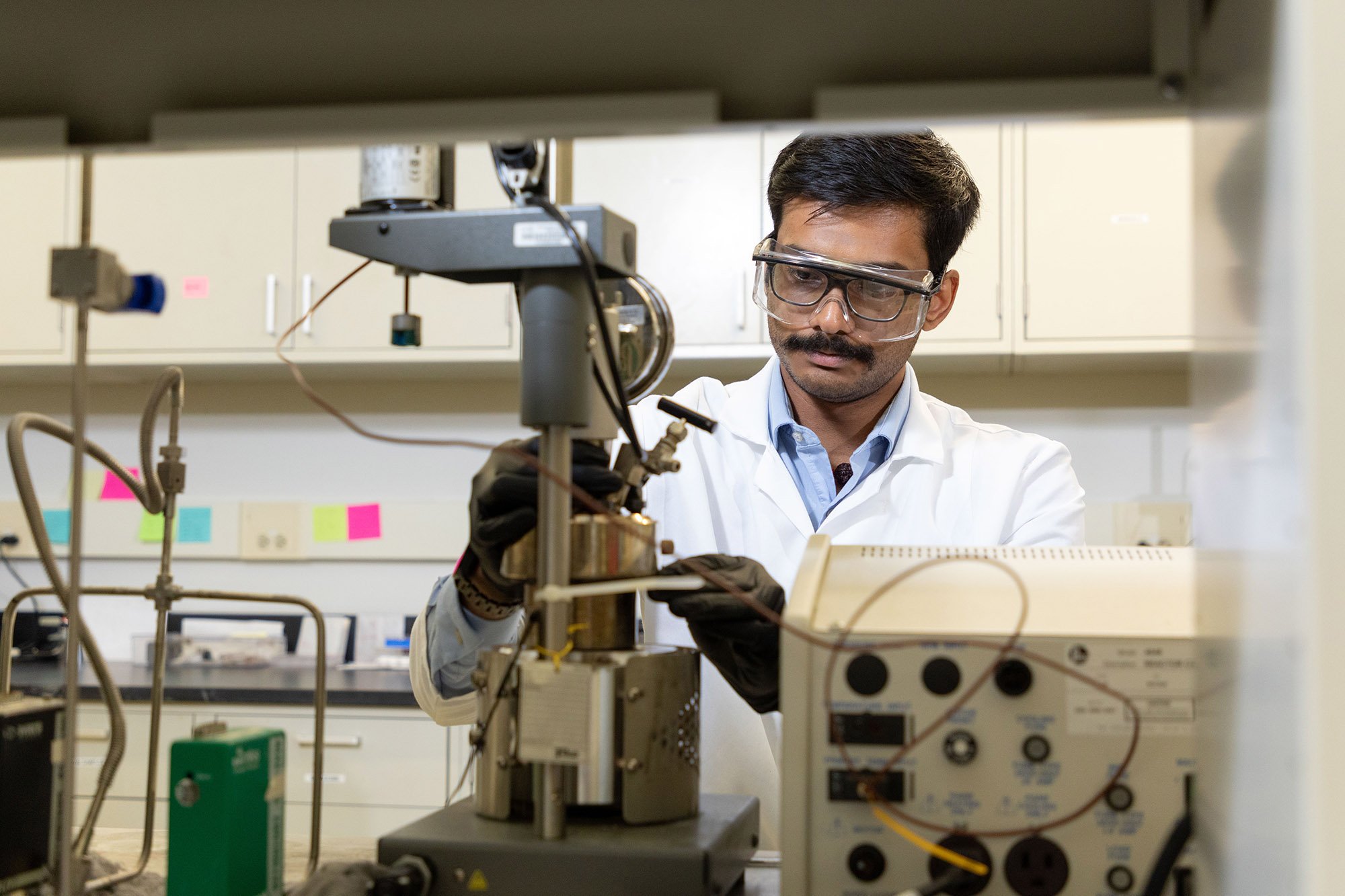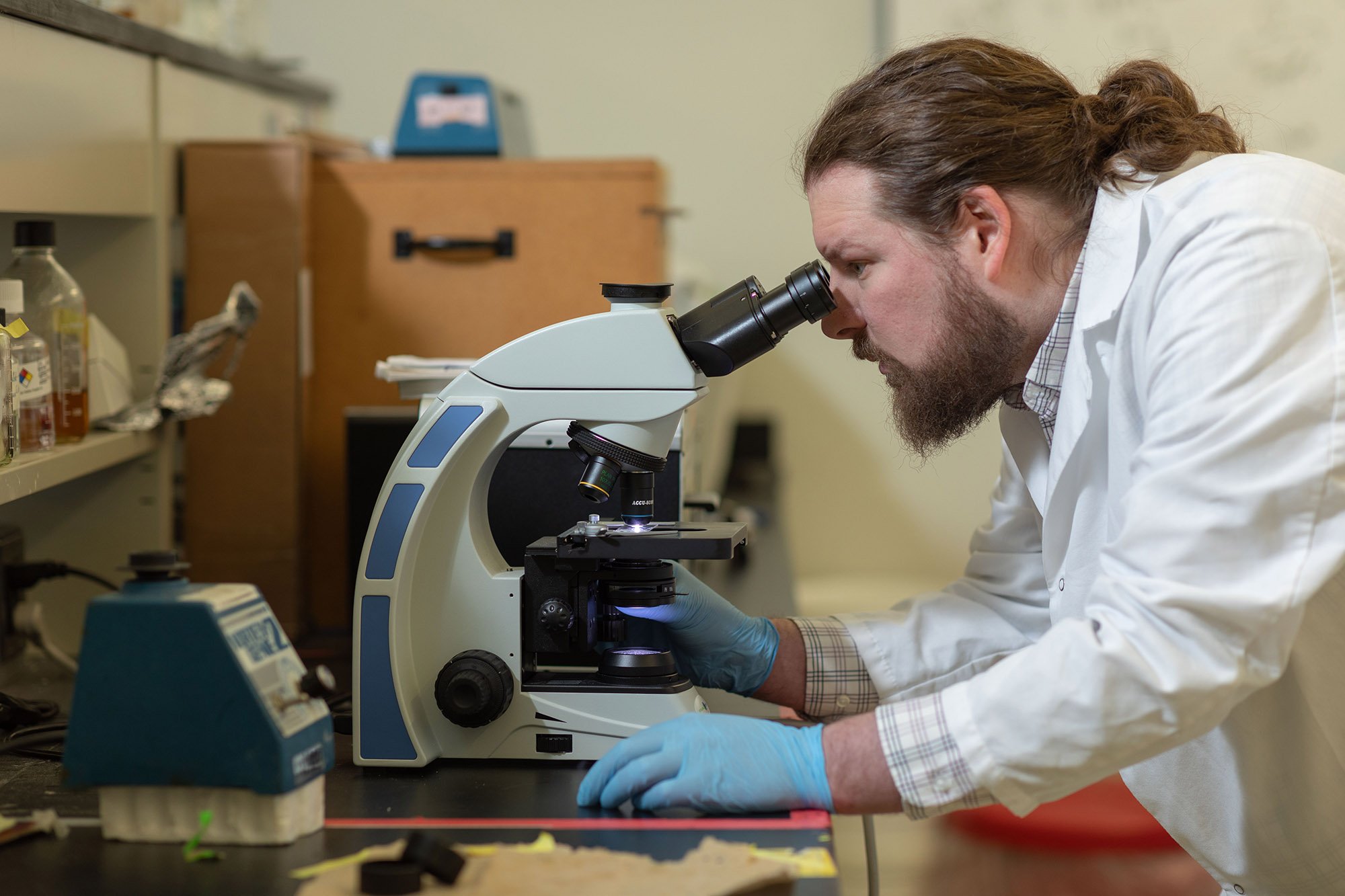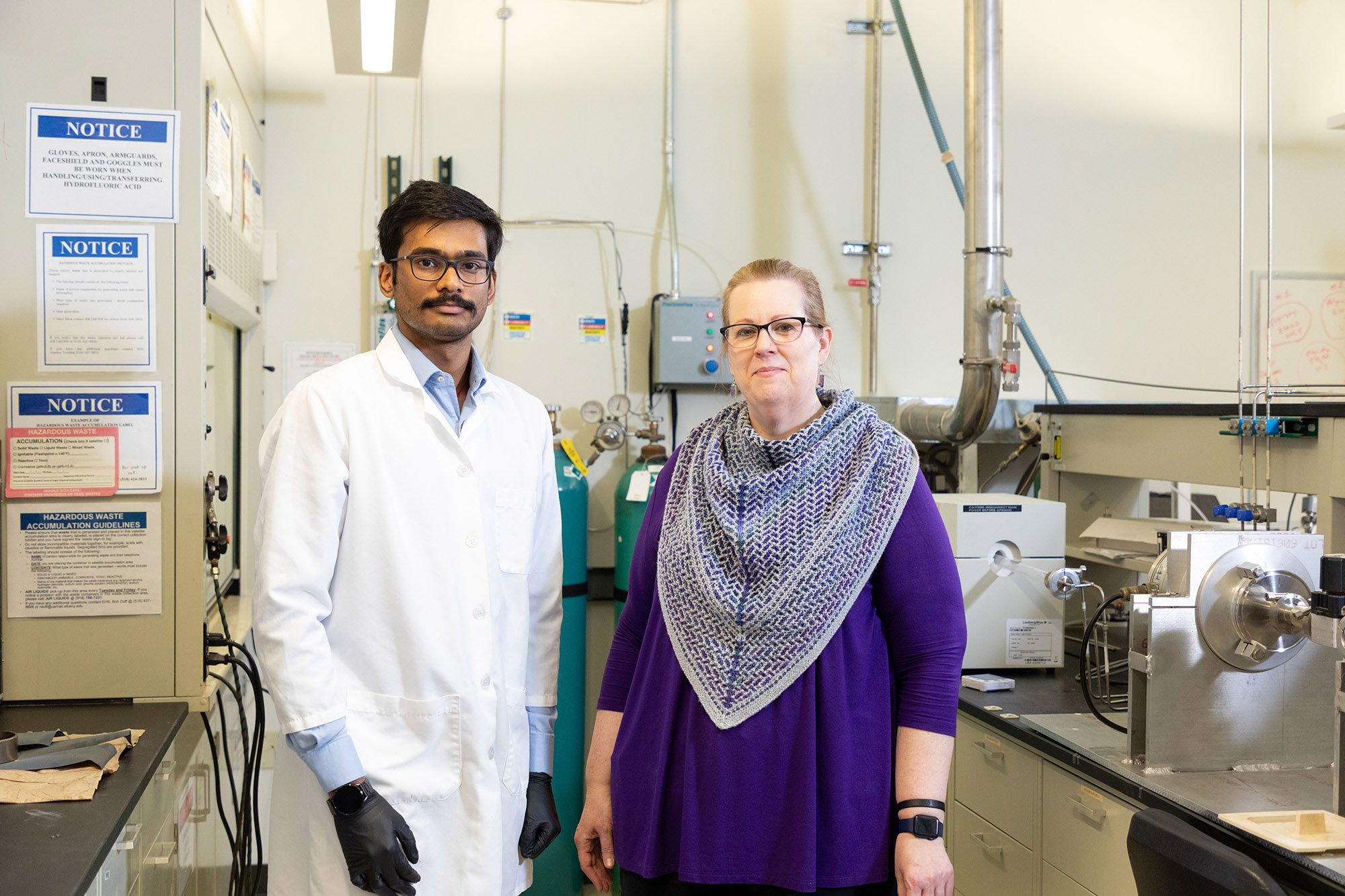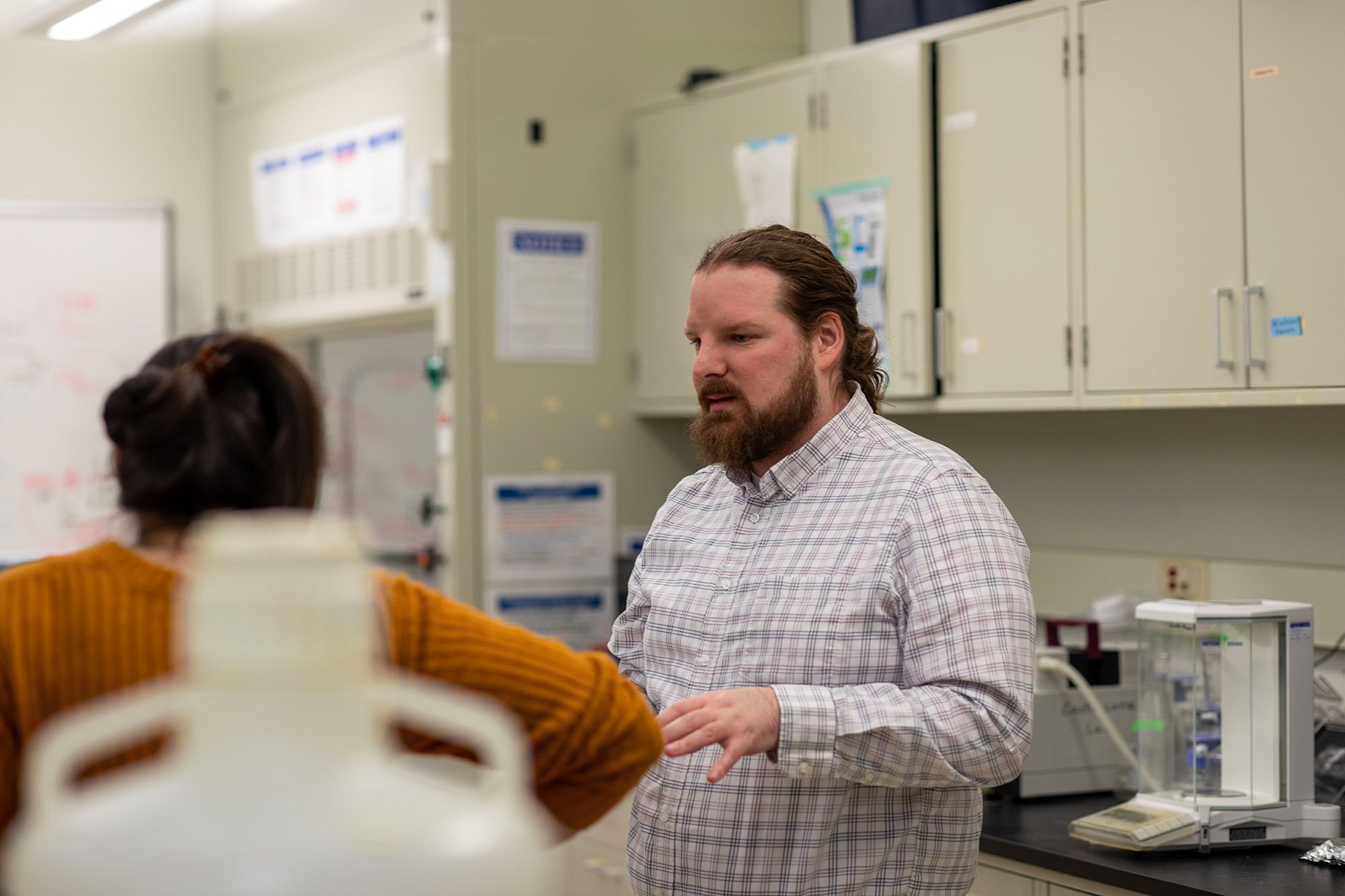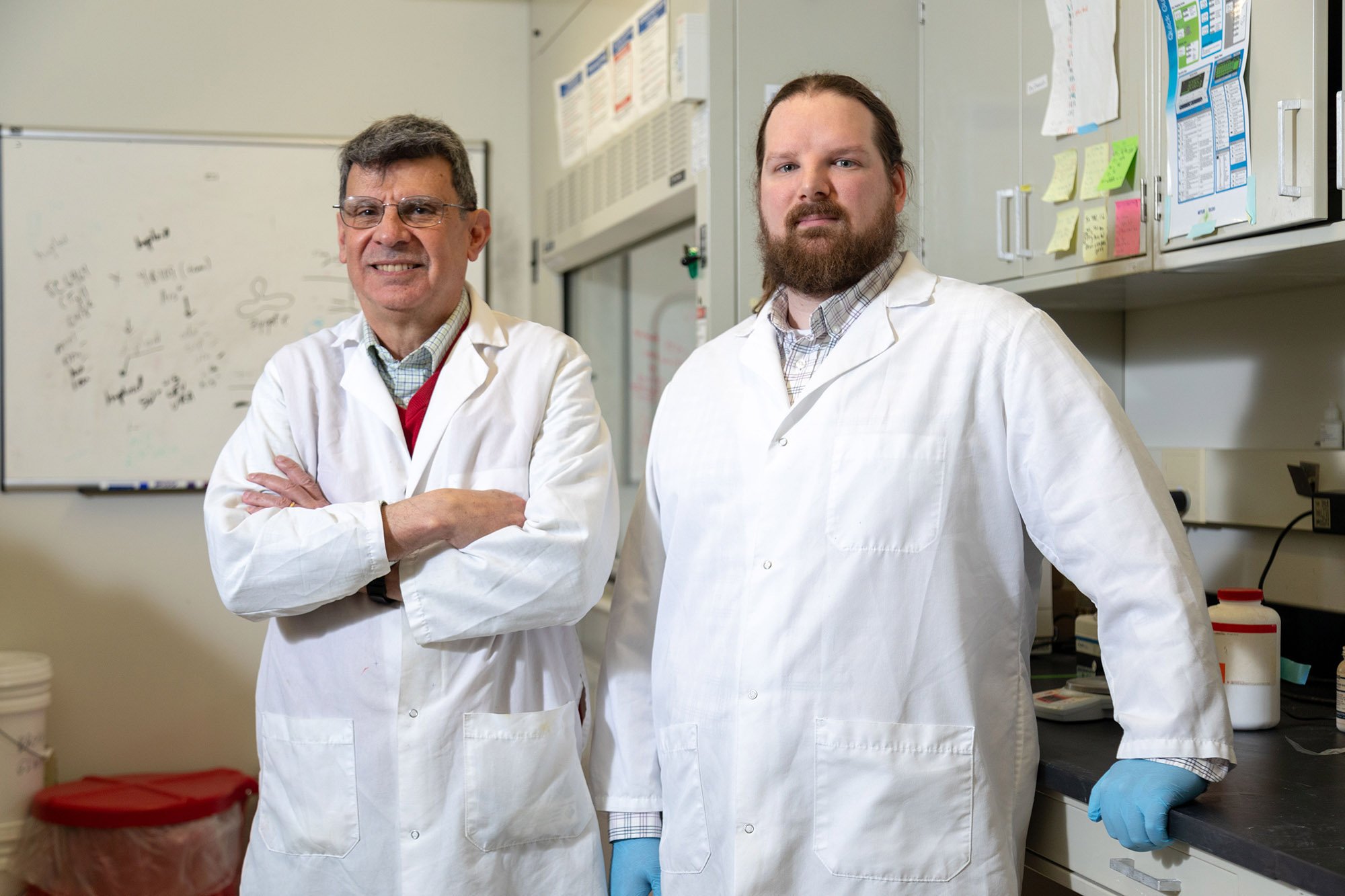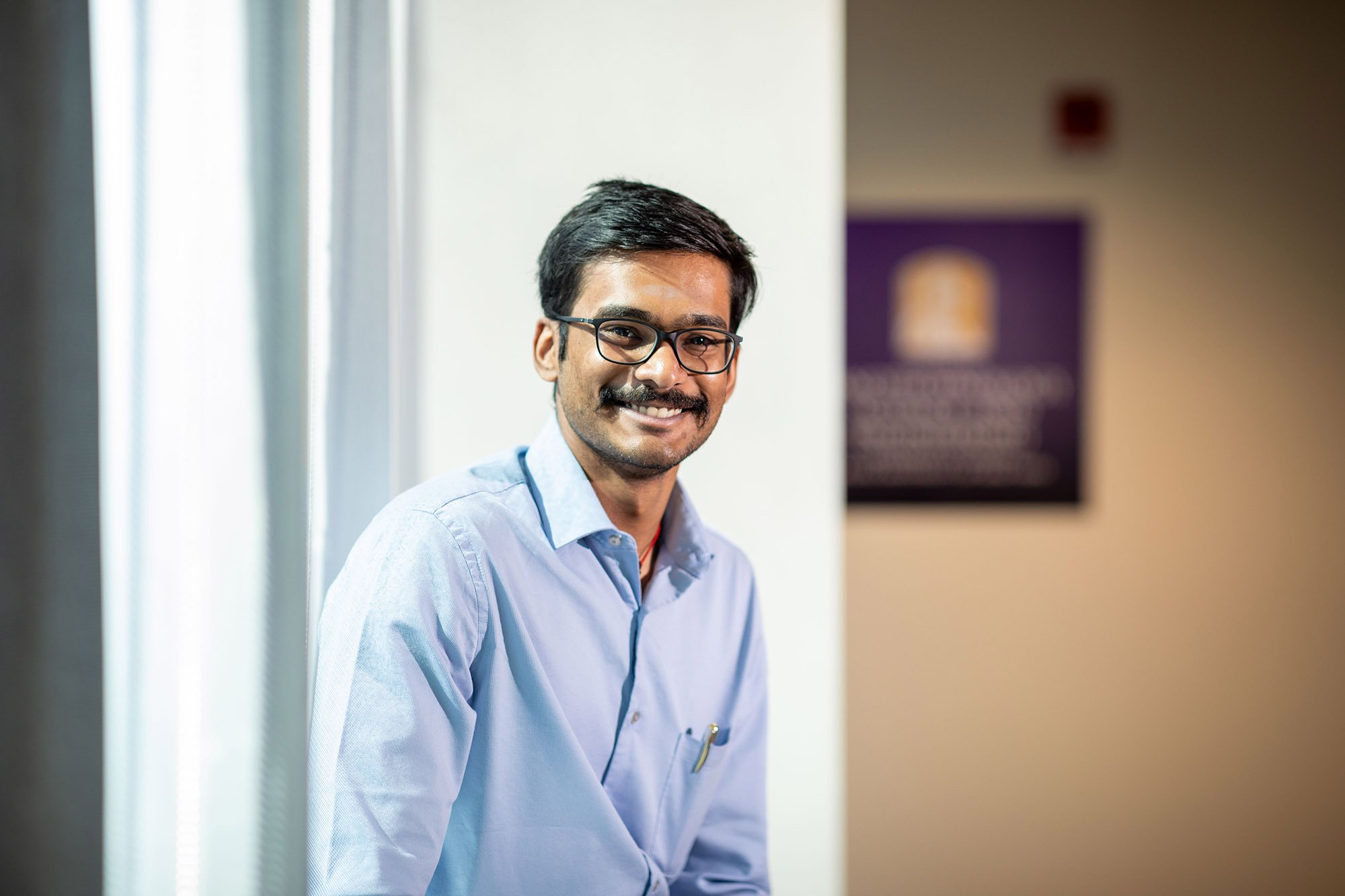Sullivan Award Honors PhD Students in Nanobioscience, Advanced Materials
ALBANY, N.Y. (March 12, 2024) — Whether it is working on advanced materials involved in nuclear reactors or examining the mutagenic properties of carcinogens, students at UAlbany’s College of Nanotechnology, Science, and Engineering (CNSE) are participating in cutting edge research while utilizing some of the most technologically advanced tools in the world.
Michael Dolan, a doctoral candidate in the Department of Nanoscale Science & Engineering (DNSE) is studying budding yeast to identify which genes confer resistance to carcinogens found in charred meats.
Working with Associate Professor of Nanobioscience Michael Fasullo, Dolan is nearing completion of his PhD while simultaneously starting his professional career. Dolan’s results identified important eukaryotic genes that function to suppress mutagenic changes when cells are exposed to dietary-associated carcinogens.
Dolan is one of two winners of the John J. Sullivan Professional Development Award for 2023-24, presented annually to CNSE graduate students to enable experiential and scholarly opportunities within nanotechnology or related fields during their studies.
“The John J. Sullivan professional development award enabled me to publish my research in an open access journal, completion of the final requirement for my PhD,” said Dolan, now a senior scientist at sxRNA Technologies Inc., a company that is exploring and developing novel RNA mechanisms for biomedical applications.
The Sullivan Award provided funds for Dolan to author an article in a high profile journal, Genes, Genomes and Genetics. Dolan also was a named a fellow of the RNA Institute in 2022-23.
The second Sullivan winner is PhD candidate Sri Saravana Konganapuram Narasimma Bharathi, who is studying how pipes corrode in water coolant systems in the lab of DNSE Professor Kathleen Dunn. The project is sponsored by Fluor Marine Propulsion.
“We synthesize model corrosion products, measure their properties, and use those experimental values to inform a physics-based model aimed at understanding the processes underway in particle transport,” said Konganapuram Narasimma Bharathi. “The accumulation of corrosion products, known familiarly as CRUD, is difficult to study inside a reactor. Having a realistic model for predicting the behavior of CRUD is crucial to designing strategies that preserve the safety and efficiency of these reactors,” said Dunn.
The research aims to prevent or reverse particle deposition in the coolant loop of pressurized nuclear water reactors. Similar to Dolan’s experience, the Sullivan Award enabled Konganapuram Narasimma Bharathi to complete critical steps toward earning his PhD.
"Providing students with the opportunity to attend conferences to present their research or publish in high impact journals is extremely important for their professional development and opens doors to career options following graduation," said CNSE Dean Michele J. Grimm. "We are very appreciative of donors like John Sullivan. Their understanding of the impact of our students on future developments in engineering, computer science, and nanotechnology — and their donations to funds that support student success — are magnified as our graduates pursue professional opportunities that address challenges faced by society."
A U.S. Army veteran who rose to become vice president of Marketing and Technology Management for MKS Instruments in Andover, Mass., John J. Sullivan made a career of promoting innovation and imagination. After a visit to what was then the UAlbany Institute for Materials in the late 1990s, Sullivan came away highly impressed with the students and faculty of UAlbany’s nanotechnology program and the promise it held. After he retired in 2000, Sullivan became a visiting senior scientist at UAlbany. He later donated nearly $750,000 in MKS stock to establish the fund that now bears his name.
In 2007, Sullivan was asked what the future held for nanotechnology and for the young scientists honing their skills at CNSE. “It’s limitless,” said Sullivan, who passed away in 2010. “It’s just what people can imagine.”





